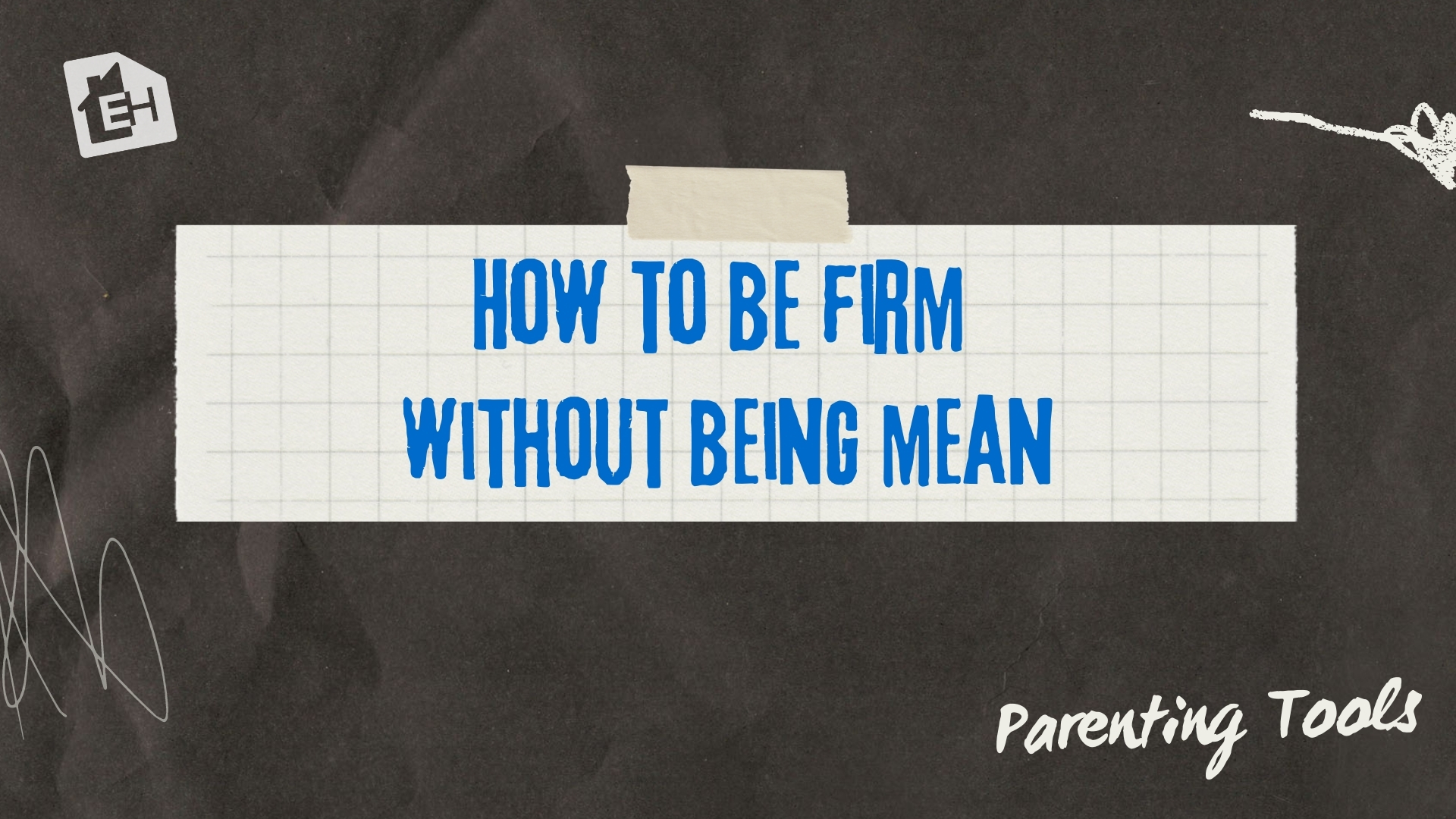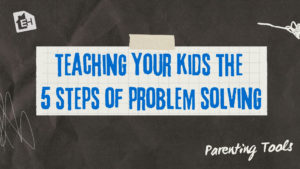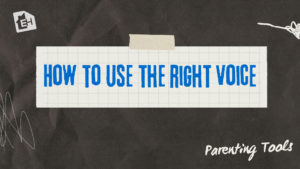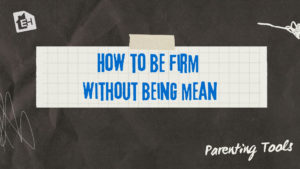
Are You Mean?
I often find myself feeling guilty for saying something to my kids that comes across as mean. For example, when my son is consistently not listening, I may use a sharp voice to grab his attention. In the moment, I want to make sure I am clear, and he hears my voice, but often times I replay the scene in my mind and ask myself, “was that too forceful or mean?”
I’m not perfect in this area, but I am striving to remain firm with my kids without being mean. There are times where we have to raise our voice in order to grab our children’s attention quickly. If my daughter is across the room about to shove a fork in the wall outlet, I am going to have to be loud and firm for her protection. The balance is making sure in our firmness we are not using shaming or demeaning words that are mean. As we help our children develop and grow, we must be firm without being mean. Here are three tips in keeping your words firm and not mean.
1. Set Known Limits and Boundaries
One of the biggest triggers that can cause a mean reaction toward your kids is when you find yourself frustrated with their actions or words. When our kids are not responding appropriately, you want to react to the situation and course correct immediately. If you have set limits and boundaries ahead of time and you are firm in keeping these established, then you are less likely to lash out. If your child asks to play on the iPad and you say sure without limits, when it is time for her to get off the iPad then conflict may arise. Instead, if they ask to play on the iPad, make it a point to tell them yes, but only for twenty minutes. Have them understand fully what twenty minutes means and you can even set a timer. Being firm with limits and boundaries is an easy way for us to avoid being mean. For more resources on setting boundaries using contracts click here!
2. Stick to What You Say
Sticking to what you say is crucial to avoid being mean to your kids. Imagine playing darts with a moving target, you may find yourself missing the board and being frustrated. Often, we are mean because the expectations we have set are adjusted by us to appease the situation or avoid a meltdown. For example, when we tell our kids no devices at the table we need to stick to it. If we give in and hand our phones to our kids because they are throwing a fit, they learn that all they need to do to get what they want is to throw a fit. When this continually happens, we as parents get frustrated and we can lash out with harsh words. Being firm in sticking to set or original boundaries will help your words maintain power over time.
3. Speak Calmly
Some experts will tell you that in order to avoid being mean and staying firm you must speak your words calmly. While this is partly true, we still need to watch what we are saying even in the calmest matter. The key to remaining calm is keeping in mind the end result. Whatever the situation or conflict between you and your child, the end result is to equip, teach and train our children.
Ask yourself, “how are these words going to further the development of my kids into the person I want them to become?”
When you use mean words, you are hindering your kids from taking steps forward in their development. It goes without saying that most of parenting is simply to remaining calm, especially with our words. We can be calm and still be firm without being mean.
More Tools For Your Parenting Tool Belt

Empowered Homes Podcast: Extending the Conversation

Moments Matter

Teaching Your Kids the 5 Steps to Problem Solving

How to Use The Right Parenting Voice

Working Out Parent Guilt and Regret

